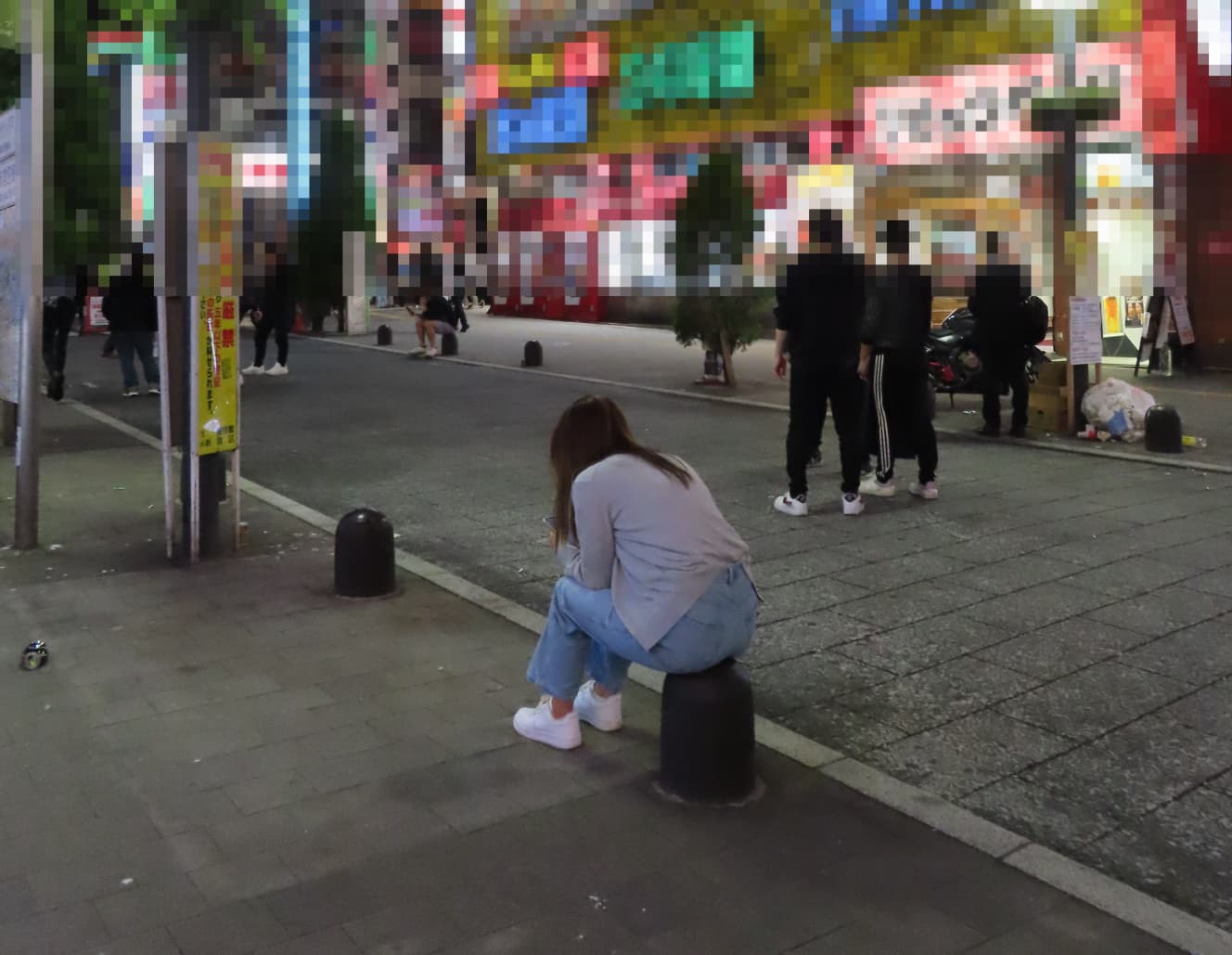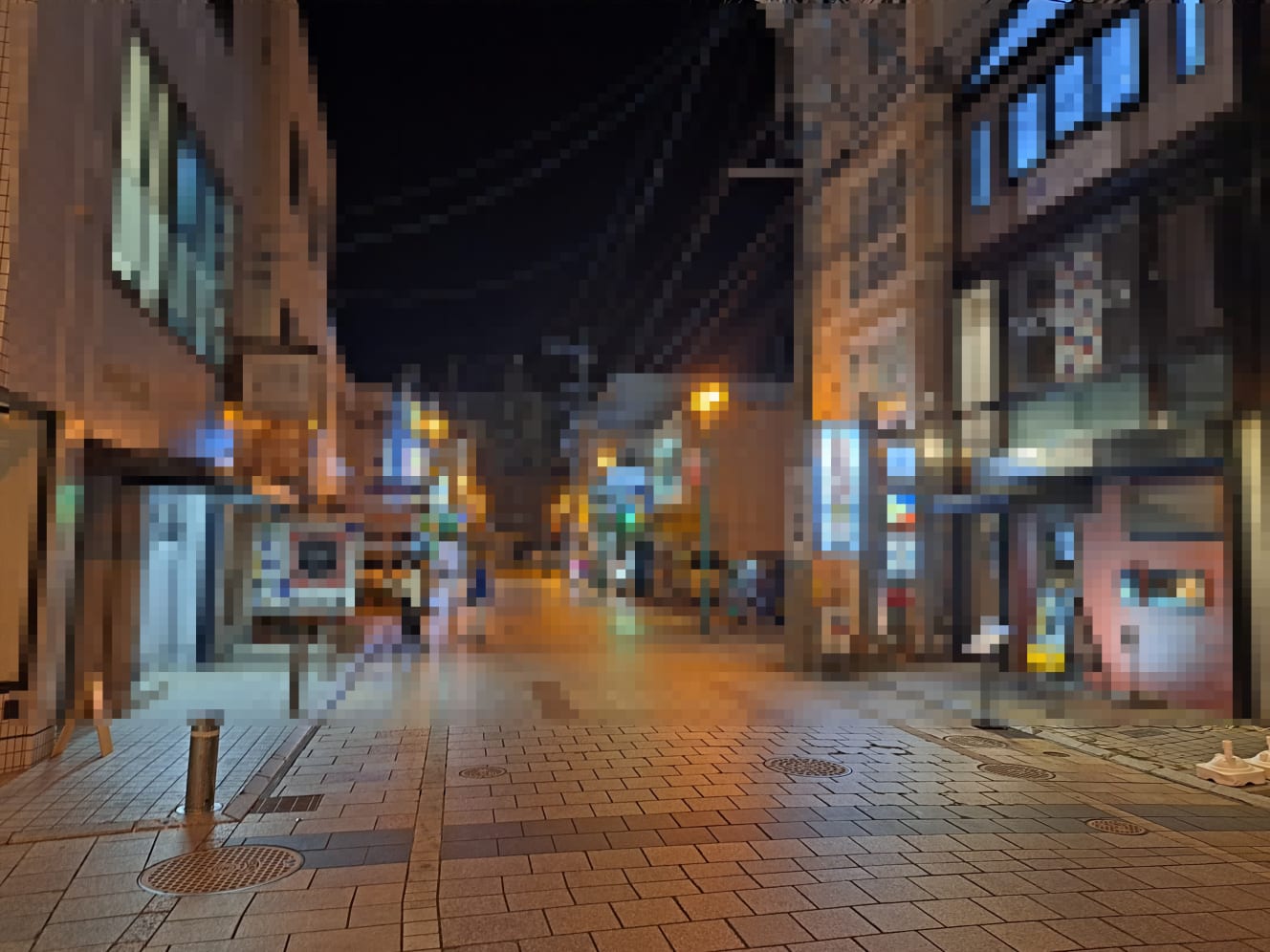Prostitution, illegal drugs… Why a girl who sank into the nightlife kept “letters and good luck charms that her poisonous parents kept sending her”?
Nonfiction writer Kota Ishii delves into the reality of the "young homeless," young people who have lost their homes!
Emika Aota (pseudonym) was born in Niigata Prefecture and was controlled by her mother, a typical example of toxic parenting. Continuing from Part 1: How a girl with toxic parents became addicted to sex and drugs, we would like to take a look at her life.
After dropping out of high school, Emika went to the city at night to escape from her mother’s control. She socialized with local gang members, dabbled in illegal drugs such as marijuana, and lived a life of repeated prostitution, trafficking, and pimping.
His mother realized that she could no longer control Emika, whom she thought of as her alter ego, the way she had always done, and tried to approach her in a different way. She frequently wrote letters to Emika, expressing her sympathy, concern, and updates.
Emika says, “My mother knew she could not control me physically.
When my mother realized that she could no longer physically control me, she began to play the role of ‘a mother who cares for and watches over her daughter from afar. Because she is my Emika, I, as her mother, know how hard it is for her the most. So, she began to constantly tell me that her mother would always be watching over her.
She would also send me all kinds of good luck charms. I am sure that my mother tried to mentally control me by doing so. No matter how far my mother went, she could not live without severing the connection with me. I think that is why she tried to believe that she was connected to me through the image of a delinquent daughter and a mother who understood her delinquency.
Continuously controlled by a mother she hated: ……
Normally, a delinquent woman would be so disgusted by such a mother that she would tear up the letter and cut off contact with her.
Emika, however, did the exact opposite. Although she hated her mother so much, she gave her a new address every time she moved from one man’s house to another, looked over the letters she received, kept them in a safe place, and wore a good-luck charm. Even though she had physically distanced herself from him, he probably continued to control her mentally.
Shortly after turning 18, Emika left her native Niigata and moved to Hyogo Prefecture. She met a man a year older than her through a chat room that was popular at the time, and in exchange for a physical relationship, he agreed to let her live with him.
At this time, Emika’s sexual deviant behavior had become alarming. For some time, she had been going around to the homes of men she met in chat rooms and other places, asking them to stay over in exchange for sexual favors, but even during this time, she was getting physical with another man near the time she met him.
Emika analyzes the reason for this.
I have been a part of my mother’s life ever since I can remember. My mother controlled everything, and I lived my life like an alter ego. So I had a sense that I didn’t know what I was or where I was. But it was different only when we were having sex. Sex is something that is done between me and the other person, and my mother does not intervene. So when we were having sex, I felt as if I could be my true self.
It was the same when I was doing marijuana. It may have been a hallucination, but when I was doing it, I felt like I could be myself, away from my mother. That’s why I kept doing it. However, I have never been in love with a man. I don’t even know what love is. My parents never taught me what love is in the right form, so I can’t picture what it is.
For Emika, sex with the opposite sex was a means of temporarily escaping her mother’s curse in a spiritual sense. The use of marijuana is no different. In other words, for Emika, the opposite sex and marijuana were merely tools for this purpose.

Emika then became involved with an unspecified number of men while working as a water peddler and prostitute, and moved from one residence to another. Okayama, Hiroshima, and Fukuoka. …… She met and became physical with men she met through night work and chat rooms, and lived with them.
She once got into trouble with a man and was thrown out of her house, lived in a car, and ran away to an institution.
What is surprising is that despite this life, every time he moved, he sent his contact information to his parents’ house, received letters from his mother, and read them with great care.
The letters still read, “My Emika-chan,” and were filled with words of support and warmth for her daughter, who must have been having a hard time wherever she went.
Not only a letter but also a good-luck charm
I was allowed to read some of the letters, but what I found unusual was the mother’s frequent desire to send good-luck charms. She would write her thoughts in a distinctive font on her letterhead, and then send some unknown object, such as a stone or glass, as a good-luck charm.
Perhaps the mother entrusted the amulet to her as her alter ego. She thought that if her daughter had it, it would be the same as if she had it by her side. Emika also kept the amulet, even though she disliked her mother.
Emika says.
“When I was moving from place to place, I was dating a murderer and was arrested for marijuana. I was living in shambles by all accounts, and I even received welfare benefits.
Despite living like that, for some reason I went home to my parents at least once a year. I thought I ran away from my parents because I hated them, but I couldn’t help but return to them. At the time I did so because I thought it was natural, but now I think about it, I guess I was still under my mother’s control by letter.”
Such a life changed in ’16 when she had a daughter with a man she was dating at the time.

Emika, who never knew what it was to love, could not find meaning in her life with a man, and they separated soon after giving birth. However, it is difficult to survive while raising a baby on her own without an honest job. After much consideration, she returned to her hometown of Niigata and entered a mother-child living support facility.
A mother-child living support facility is a facility that temporarily accepts mothers and children who have difficulty raising children due to circumstances, and creates a path to independence. It was probably also because of the mother’s mental control that she went to the trouble of entering a local facility.
The mother delivered gifts one after another to Emika at the facility. She would then say, “You are my Emika’s mother.
–Your mother is watching over me, Emika. So, please come back anytime.
I guess she was still trying to keep Emika close to her.
From “mother and myself” to “myself and my daughter
While Emika was raising her daughter calmly at the facility, she gradually began to realize that she was still controlled by her mother. The existence of her daughter, who until then had only been “her mother and herself,” gave birth to a relationship of “herself and her daughter,” and she was able to think about the relationship from a distance. What used to be the opposite sex and marijuana was replaced by her daughter.
Emika gradually began to feel a sense of crisis that she could not continue to stay by her parents’ side. Without physical and emotional distance, she would never be able to escape her relationship with her mother for the rest of her life. She then decided to leave Niigata and move to Osaka.
Today, Emika works as a temporary worker and lives with her mother and child. She says
I try not to be like my mother while raising my daughter. I too have a tendency to think in black and white and control people. So I don’t want to do the same thing to my daughter that was done to me.”
For this article, Emika contacted us for an interview. For her part, she probably wanted to make her own reckoning by telling her story in the nakedness of what she has been through.
Living in Osaka, she still has a letter that her mother once sent her. When she is able to let go of them, she may be able to escape her mother’s curse in a real sense.
Wanted.
The series “Young Homeless” is looking for people in their 10s to 40s who have no permanent place to live. We are looking for real-life experiences of people who have lost their housing, either now or in the past, such as people living in cars, Internet cafe refugees, migrant sex workers, day laborers living in dormitories, hotel dwellers, store dwellers, and people living in various support facilities, as well as the voices of those who are providing support for these people. Anonymous or other conditions are acceptable, so please contact the author.
Kota Ishii (Author)
Twitter @kotaism
Email postmaster@kotaism.com
Reporting, writing, photography: Kota Ishii
Born in Tokyo in 1977. Nonfiction writer. He has reported and written about culture, history, and medicine in Japan and abroad. His books include "Absolute Poverty," "The Body," "The House of 'Demons'," "43 Killing Intent," "Let's Talk about Real Poverty," "Social Map of Disparity and Divide," and "Reporto: Who Kills Japanese Language Ability?
